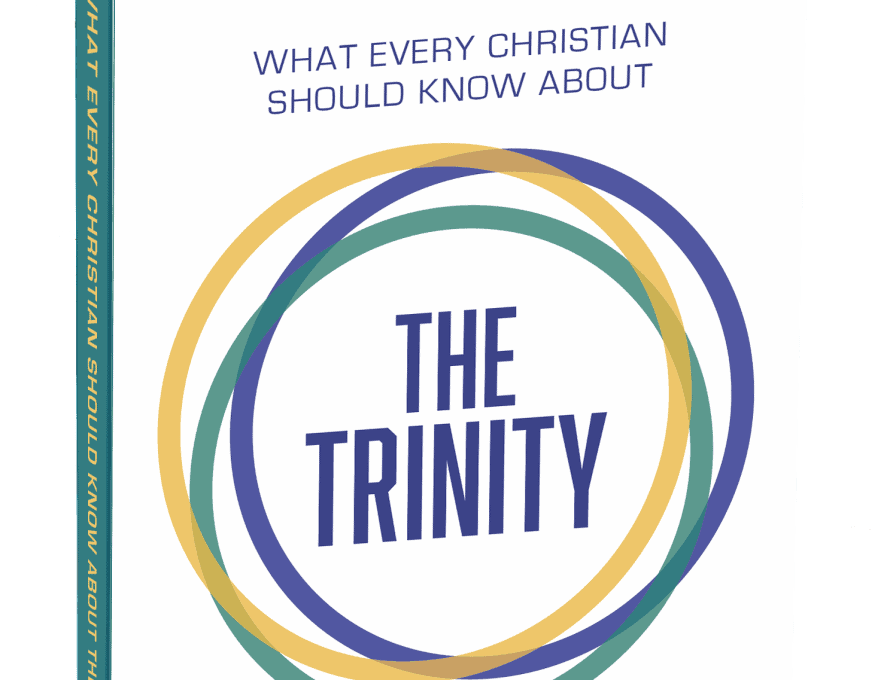This is the 14th in a series of articles on the Trinity, excerpted from “What Every Christian Should Know About the Trinity,” available by contacting the MBC or through Amazon and other booksellers.
In the previous column, we explored the Father’s deity. Now, let’s look at some ways the Bible describes the Fatherhood of God.
First, the Greek word theos is used of the Father. We see this in numerous passages, such as Galatians 1:1 and 1 Peter 1:2. While theos also is used of Satan (2 Cor. 4:4) and pagan idols (1 Cor. 8:5), the New Testament writers are clear that these entities are not God by nature (Gal. 4:8). In fact, Paul argues that the gods of the pagans actually are demons (1 Cor. 10:20).
In addition, the Greek kyrios (Lord) is found more than 700 times in the New Testament and is clearly applied to the Father in numerous passages (e.g., Matt. 4:7; Heb. 12:5-6).
Second, the Father’s divine attributes reveal His deity. The Father is eternal (Rom. 1:20; 1 Tim. 6:16); almighty (Rev. 19:6); immortal (1 Tim. 1:17); all-knowing (Matt. 6:32); perfect (Matt. 5:48); and true deity (John 17:3).
We should not overlook the significance of 1 John 1:3, where the apostle writes, “[W]hat we have seen and heard we also declare to you, so that you may also have fellowship with us; and indeed our fellowship is with the Father and with his Son Jesus Christ.” The invitation to fellowship with the Father, as with the Son, demonstrates both His personhood and His deity.
Third, the Father performs the works of God. These include creation (Heb. 2:10); sovereignty (Matt. 11:25); providence (Matt. 5:45; 6:26); the authority to judge (John 5:22); the bestowing of life (John 5:21, 26); and salvation (Eph. 1:4).
In John 5, after Jesus heals a disabled man, the Jewish leaders begin persecuting Jesus because He performs this miracle on the Sabbath. In response, Jesus calls God His Father, making Himself equal with God (v. 18). Further, He describes the divine authority the Father has given Him for His earthly ministry. This authority includes working (v. 17, 19); revealing Himself (v. 20); raising the dead (v. 21); judging (vv. 22, 27); receiving honor (v. 23); granting eternal life (vv. 24-26); resurrecting all people (vv. 28-29); and revealing His divine will (v. 30).
Fourth, the Father speaks the words of God. In Romans 1, Paul claims he is called as an apostle and set apart for the gospel of God, which He [the Father] promised beforehand through His prophets in the Holy Scriptures, concerning His Son, Jesus Christ (vv. 1-3). And in Hebrews 1, the writer declares, “Long ago God spoke to the fathers by the prophets at different times and in different ways. In these last days, he has spoken to us by his Son …” (vv. 1-2).
Fifth, the Father is worshiped as God. We are to “ascribe to the Lord the glory due his name; worship the Lord in the splendor of his holiness” (Ps. 29:2); “worship and bow down” (Ps. 95:6); and “worship the Father in Spirit and in truth” (John 4:23).
Sixth, Jesus declares the Fatherhood of God. For Jesus, “God” and “Heavenly Father” are synonymous expressions. Jesus clearly has the Father in mind in many references to God. On the cross, in a prayer of agony to the Father, He cries, “My God, my God, why have you abandoned me?” (Matt. 27:46). This shout of anguish comes between other prayers of intimacy with the Father. As He is nailed to the cross and hoisted between two criminals, Jesus prays, “Father, forgive them, because they do not know what they are doing” (Luke 23:34). Then, just before He breathes His last, Jesus shouts, “Father, into your hands I entrust my spirit” (Luke 23:46).
Seventh, the Bible reveals God as the Father of all humanity. Scripture shows Yahweh to be the Father of all people through creation. Humans are fashioned in God’s image, so to the extent that we are His creatures, He is our Father. Paul exclaims to the Athenians on Mars Hill, “For in him we live and move and have our being, as even some of your own poets have said, ‘For we are also his offspring.’ Since we are God’s offspring then, we shouldn’t think that the divine nature is like gold or silver or stone, an image fashioned by human art and imagination” (Acts 17:28-29).
Next: The God and Father of our Lord Jesus Christ.

